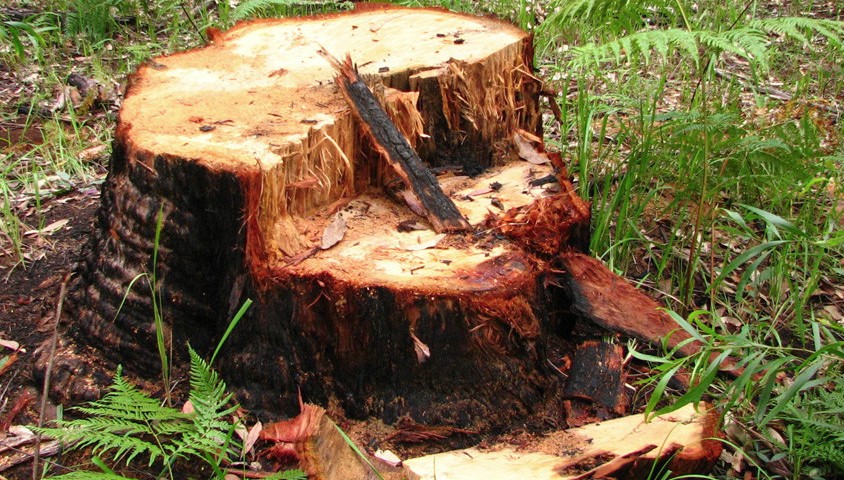Even though the Newman government was voted out of office earlier this year, the wave of environmental destruction set off by the previous government continues to sweep across Queensland.
Newman’s legacy and that of his LNP Party, now in opposition, was to reverse, wind-back and dismantle more than a decade’s worth of environmental protection.
The so-called green-tape cutting, championed by then Deputy Premier and current Member for Callide Jeff Seeney, proved to be merely an excuse to remove necessary and rigorous environmental protection. The three-year frenzy of regulation slashing delivered naught for Queenslanders. More worryingly, it damaged the state’s $10 billion tourism industry, which is reliant on our extraordinary natural assets for its survival.
Changes to clearing laws, coastal planning and various approvals that served to destroy the habitat of many threatened species are still in effect today. While the Palaszczuk government scrambles to address various threats to the Great Barrier Reef, trees are dropping once again across state forests that were once earmarked for protection.
Perhaps one of the most ideologically driven and cynical manoeuvres of the former LNP government was the reversal of the Bligh Government’s decision to protect key forest reserves across the state. Specifically targeted in this process were the unique tall open forests in north Queensland, often on the edge of rainforests.
This included native forests from Mackay, Townsville and the Tablelands around Kuranda, Eungella, Paluma and Ravenshoe. These forests, rare ecosystems in their own right, are home to a multitude of rare and threatened species including cassowaries, yellow-bellied gliders, the Eungella honeyeater, the spot-tailed quoll, northern bettong and glossy black-cockatoo, just to name a few.
The most damaging element of the LNP’s anti-environment reign was its attempt to take control of the Commonwealth’s Environment Protection and Biodiversity Conservation (EPBC) Act, our primary piece of federal environmental law, while at the same time signing off on the destruction of listed species’ habitat.
The idea, originally hatched by Federal Labor while in government, was to hand over to state governments the assessment and approval processes in the national environmental law.
The actions of the Newman Government are a telling demonstration of why this is a terrible idea for the environment we all share. By way of example, one of the forest reveres scheduled to become part of the conservation estate but given back to the logging industry was Tumoulin State Forest near Ravenshoe.
Here, the dedicated team of Tablelands National Park Volunteers have monitored and mapped the endangered yellow-bellied glider and its habitat for more than ten years.
The gliders, genetically distinct from their southern counterparts, rely on mature forest with many hollow-bearing trees for survival. They also rely on quite specific and thinly dispersed feed trees from which they tap sugar-rich sap.
The 2011 decision by the then Bligh Government to protect parts of Tumoulin from logging was a welcome relief. That decision was reversed by the Newman Government. Today, unless there is immediate intervention from the current Queensland government, Tumoulin’s yellow-bellied gliders will be pushed further towards extinction.
This will be in breach of the Commonwealth’s EPBC Act designed to protect our most vulnerable species.
But Tumoulin’s gliders are not an isolated case. Further south, in the Crediton State Forest near Mackay, the state government last year let logging proceed in forests that had previously been identified for protection.
Home to the Eungella honeyeater, a poorly studied bird endemic to the area and only discovered in the 1980s, the state forest is slated for ongoing logging targeting mature trees; an important seasonal food source of the honeyeater. Research work and monitoring conducted by the Mackay Conservation Group and BirdLife Mackay suggests the rare honeyeater’s population to be in decline. Further logging in the area neighbouring Eungella National Park could imperil the species’ chances of survival.
In 1999, the Queensland Government’s State-wide Forests Process promised to bring an end to all logging of native forests by 2024. This decision was based on economic and environmental considerations. With a history of over-harvesting and a legacy of government over commitment; the remaining timber resource is no longer viable to harvest.
The newly elected Palaszczuk Government will need to move quickly to undo some of the most destructive policies pushed through by the previous government – policies that no doubt contributed to the election results. Beyond mere politics, these decisions may prove to be a lifeline to avoid the worst impacts of ongoing habitat loss for forest dependent species like the yellow-bellied glider and Eungella honeyeater.
Andrew Picone is the Northern Australia campaigner for the Australian Conservation Foundation and based in Cairns. Follow Andrew on Twitter @andrew_picone.


